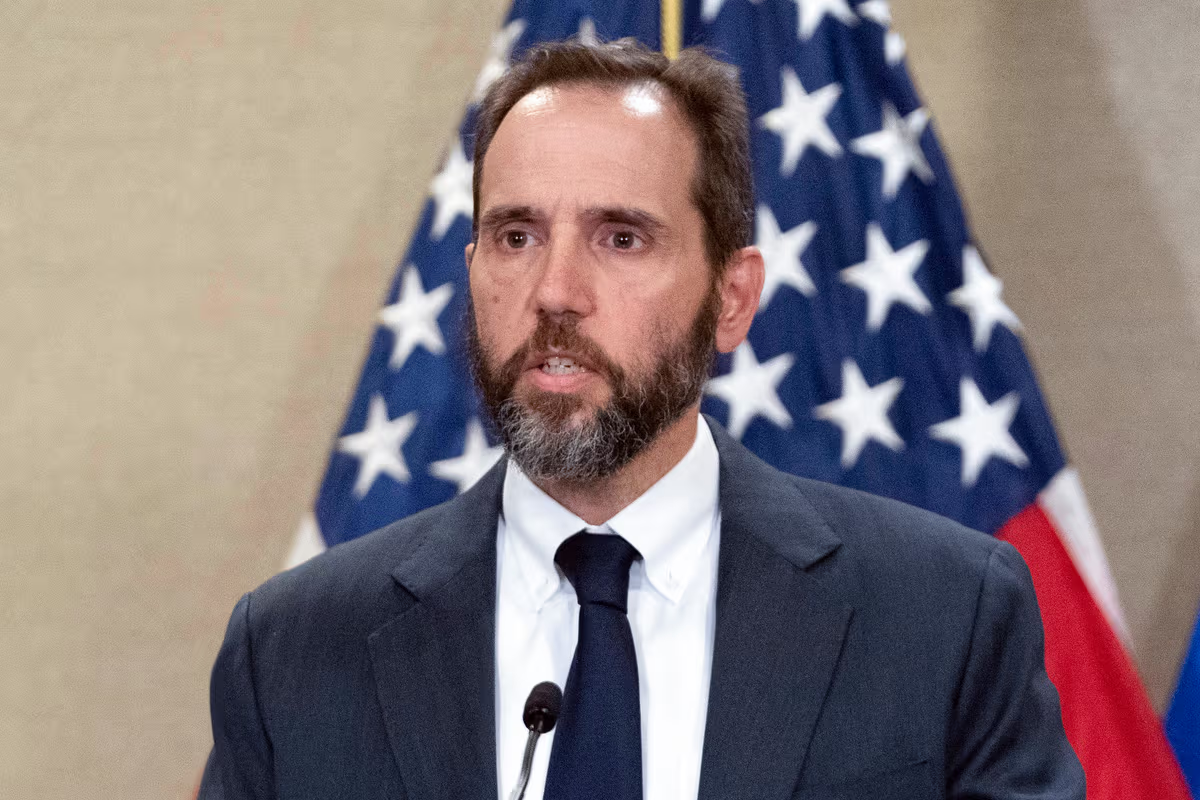Judge Cannon, at Key Juncture in Mar-a-Lago Documents Case, Will Weigh Arguments That Could End Jack Smith’s Prosecution of Trump
The case that the special counsel was appointed in violation of the Constitution’s appointments clause is gaining steam in south Florida.

Judge Aileen Cannon’s scheduling of oral arguments in the Mar-a-Lago case to thrash out whether Special Counsel Jack Smith’s appointment is unconstitutional — a cause championed by some legal scholars, attorneys generals, and eventually President Trump — raises the question of whether the special counsel could be removed.
The session devoted to Mr. Smith, set for June 21, appears on the revised schedule promulgated by Judge Cannon on Tuesday when she indefinitely delayed Mr. Trump’s trial. The new calendar replaces a trial date of May 20, vacated by the judge owing to what she describes as “myriad and interconnected” issues. The constitutionality of Mr. Smith’s appointment has also drawn interest at the Supreme Court.
Mr. Smith cannot be heartened that one of those issues appears to be whether he is even credentialed to try the case. Judge Cannon, in a footnote tucked into her scheduling order, writes that “any amici wishing to present oral argument during this hearing must seek leave of court to do so no later than June 3, 2024.” This is an invitation to brief the question and argue it in person.
All those who appear before Judge Cannon are likely to focus on the Constitution’s Appointments Clause, which ordains that the president “shall nominate, and by and with the Advice and Consent of the Senate, shall appoint Ambassadors, other public Ministers and Consuls, Judges of the supreme Court, and all other Officers of the United States, whose Appointments are not herein otherwise provided for, and which shall be established by Law.”
The Constitution, in that same clause, goes on to outline that the “Congress may by Law vest the Appointment of such inferior Officers, as they think proper, in the President alone, in the Courts of Law, or in the Heads of Departments.” The Supreme Court has interpreted this to mean that so-called “principal officers” require presidential nomination and senatorial confirmation.
“Inferior officers,” though, can be appointed by principal officers besides the president. Mr. Smith was appointed by Attorney General Garland, not President Biden. He has not been confirmed by the Senate, because his previous employment was not as a United States attorney, but as a prosecutor at the Hague where he worked for the International Criminal Court.
Not one but two arguments against Mr. Smith’s appointment — founded on these facts — have surfaced on Judge Cannon’s docket. One, championed by law professor Seth Barrett Tillman and his attorney, Joshua Blackman, contends that Mr. Smith is neither a principal nor an inferior officer but a mere “employee” and therefore unable to act without the supervision of a duly appointed officer. In this case, that would be the United States attorney for the Southern District of Florida.
Another case against Mr. Smith belongs to Attorney General Meese and the professors Steven Calabresi and Gary Lawson. They argue that Mr. Smith is a principal officer, and is, in the absence of senatorial confirmation, acting ultra vires, meaning, according to Merriam Webster, “beyond the scope or in excess of legal power or authority.” They write that Mr. Smith’s “appointment was unlawful, as are all the legal actions that have flowed from it, including Smith’s prosecution of former President Trump.”
Mr. Smith has argued to Judge Cannon that the special counsel regulations are constitutional goldilocks — neither too expansive as to trigger the need for confirmation nor so meager as to render these prosecutors employees for a season, unable to wield the prosecutorial power they have been assigned. The special counsel reminds Judge Cannon that General Garland can fire him at any time.
The Sun spoke to Mr. Calabresi, who confirmed that his case for disqualification will be argued on June 21. He is “encouraged” that Judge Cannon set aside time for the issue, a sign, he reasons, that she takes it “seriously.” When asked what he thought of Messrs. Blackman and Barrett Tillman also pursuing disqualification on different grounds, he declared “the more the merrier.”
That sentiment was echoed to the Sun by Mr. Blackman, who reckons that the arguments that Mr. Smith is unconstitutionally appointed lead to “the same destination” — the special counsel stripped of authority to prosecute. The prosecutor, he said, “wants to rush this case,” a desire that Judge Cannon has frustrated. When asked whether he too would argue against Mr. Smith in court, Mr. Blackman says only “Florida is nice this time of year.”

